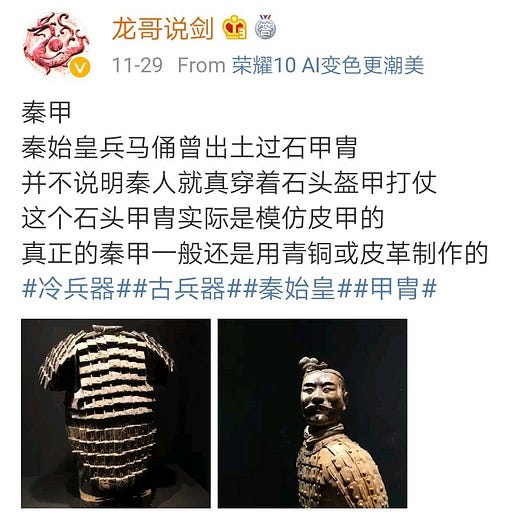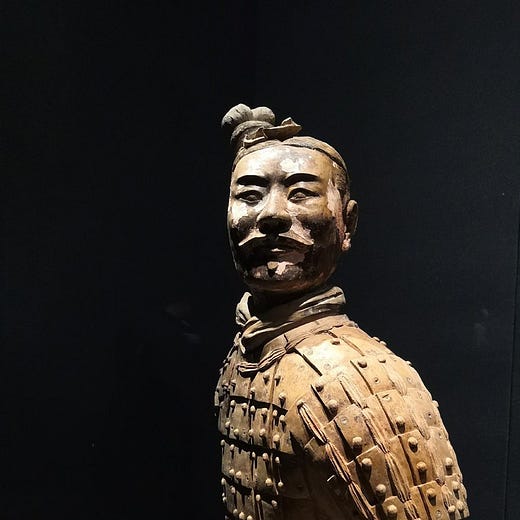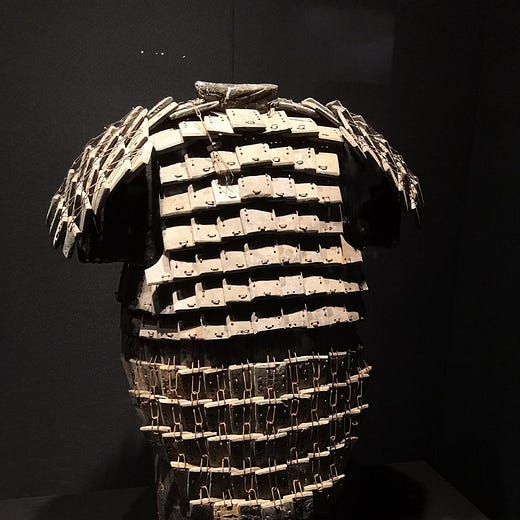A Strategic Shiraz Reserve + Tweets of the Week
Biden should purchase goods that China targets, establish a mutual trade defense pact to punish China for such behavior, and visit Australia in his first trip abroad.
This article below first appeared in Foreign Policy. I co-authored it with Yun Jiang, a former Australian government official and the editor of the China Story blog. We recorded a great ChinaTalk podcast episode together last week entitled ‘The Blunder Down Under? How China-Australia Relations Fell Off a Cliff’ takes a deep dive into how the relationship devolved over the past decade.
The United States needs a Strategic Shiraz Reserve
China has been using its economic weight to bully middle powers without consequence, and the United States needs to consider radical departures from its usually staid trade policy to support allies in the face of Chinese aggression.
Upset over Australia’s call from early this year for an independent inquiry into the origin of the novel coronavirus, and its policies on Hong Kong and Xinjiang, China has targeted Australian exports with a vengeance. Its measures have hit a range of products, from beef and barley to wine and lobster. If China’s antics continue, their moves could snowball into devastation for the Australian economy after three decades of unprecedented growth, as China buys 34 percent of its total exports.
The White House announced it would be serving Aussie wine at a holiday party, but much more is needed to ensure that the United States has its closest allies’ backs. In a recent New York Times interview, U.S. President-elect Joe Biden said that “the best China strategy … gets every one of our … allies on the same page.” Responding forcefully to Beijing’s bullying one of Washington’s closest allies should be a top priority in the first weeks of a Biden administration.
So what should the United States do?
Yes, the United States needs to show up at the World Trade Organization in support of Australia’s complaint against China’s most recent actions, use WTO’s formal review of China’s trade policies coming up in July 2021 to make a real stink, and consider joining a modified Comprehensive and Progressive Agreement for Trans-Pacific Partnership (the successor to the Trans-Pacific Partnership).
But American policymakers should think bigger than these routine moves which the Bush and Obama administrations contented themselves with to chastise China for its trade violations. The United States has allowed such allies as Japan, South Korea, and Canada to suffer from China’s trade bullying for years, with little but rhetorical support coming from Washington. The two to three years it takes for the WTO to respond to clear-cut cases of Chinese malfeasance is too slow and, ultimately, all that the WTO can offer is its blessing to snap back with retaliatory measures. The current WTO system does not pack remotely enough punch to deter Beijing or even attempt to make impacted countries whole.
China clearly sees the use of economic coercion as a central part of its foreign-policy toolkit, but U.S. allies should not fear that stances on Xinjiang, Hong Kong, or the South China Sea will cost them economically.
To change the state of play, the United States should consider supporting allies’ domestic industries impacted by Chinese actions, as Washington does when its own producers get hit.
The most creative idea comes from the economics writer Matt Klein, who has proposed a “Strategic Shiraz Reserve.” Under his idea, the government could create a special purpose vehicle to buy and hold foreign commodities that lose sales thanks to aggressive Chinese trade action, financed either directly by congressional appropriations or Federal Reserve borrowing if one is worried about budget scoring. The U.S. government, after all, already has experience managing reserves of oil, cheese, and even mohair. The money wouldn’t be thrown away, as at some point the United States could start selling back these nonperishable commodities onto the world market, perhaps even at a profit.
A whole ‘wine-dark sea’ of strategic reserve might be excessive, but I wouldn’t complain!
While economists may be concerned with quality issues given the guaranteed market for products, sommeliers hit hard by pandemic troubles in the hospitality industry would be only too happy to support Uncle Sam’s efforts to stock up. And even if the United States doesn’t completely fill the gap China’s import restrictions open up, the symbolic impact of such a policy would be far more impactful on the psychology of U.S. allies than a marginal naval vessel docked overseas.
While policies like a Strategic Shiraz Reserve would blunt the economic impact of China’s actions, China should also be forced to pay a price for such behavior.
The United States already has mutual defense treaties with the likes of Australia and Japan—perhaps it could consider a mutual trade defense one as well?
The U.S. government could organize like-minded countries to impose automatic tariffs on selected Chinese exports, which would only be lifted after China ceased its measures of economic coercion. Biden could also link unwinding current U.S. tariffs on China to China’s coercive behavior.
Yes, moving quickly and multilaterally to impose costs would short-circuit the WTO dispute resolution process. However, the current WTO system has clearly failed to dissuade China from resorting to coercive trade measures. Stronger actions are required if the United States and its allies can even hope to change China’s cost-benefit calculus.
Finally, Biden should consider visiting Australia in his first overseas trip after the inauguration. Australia is one of America’s most steadfast allies; it has fought alongside the United States in every major conflict for more than 100 years. Jumping Australia to the front of the line at this moment would send a clear message both to China and U.S. allies in the region that in the face of Chinese aggression, the United States has its friends’ backs. I think the Canadians would understand.
Tweets of the Week fans, be sure to subscribe to ChinaTalk so you don’t miss out on our subscribers-only ‘Tweets of the Year’ edition of the newsletter
Thread on how to do more with export controls.
Thread

















